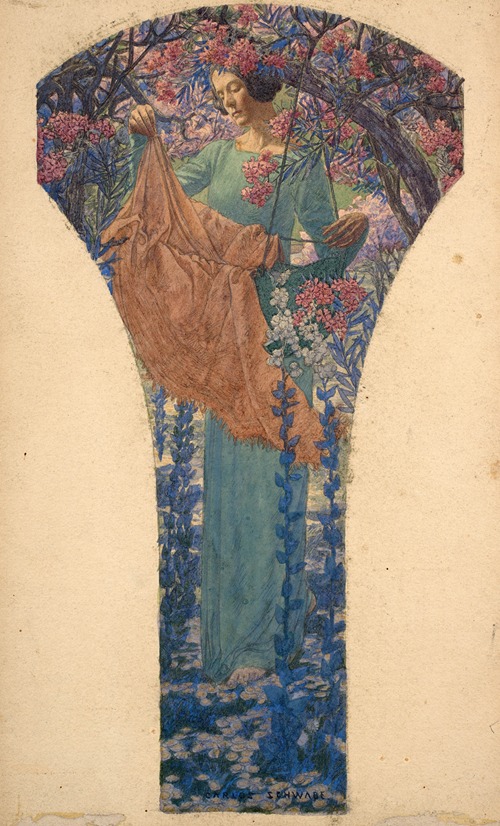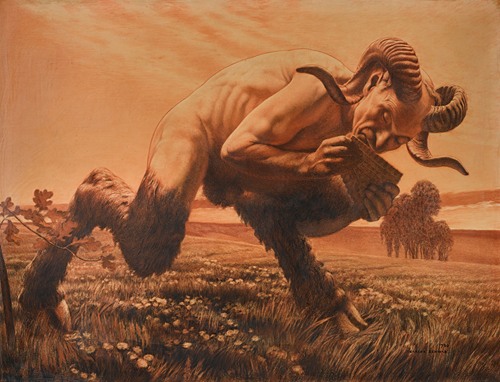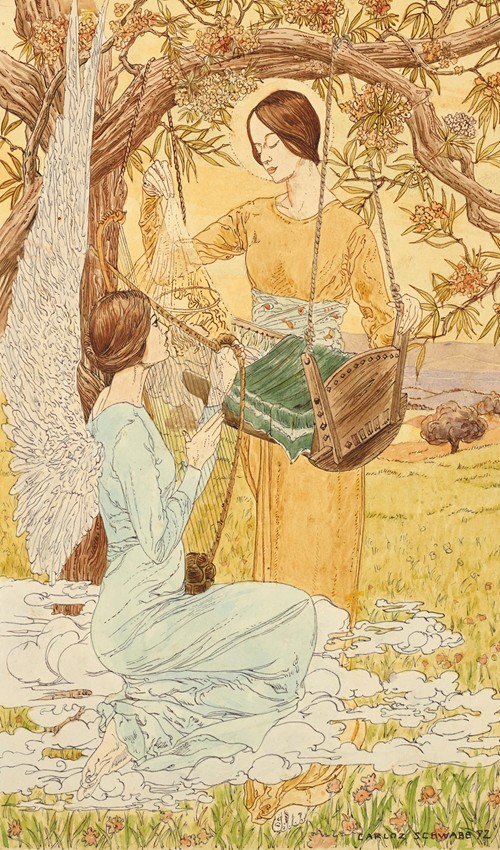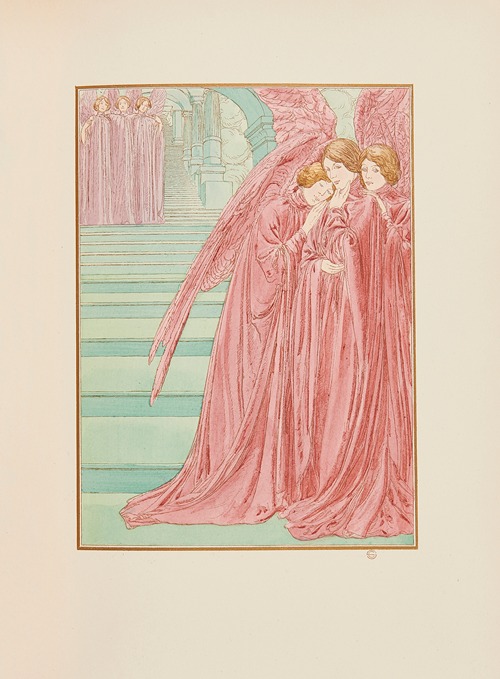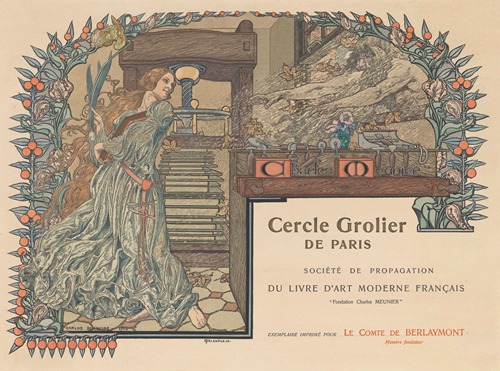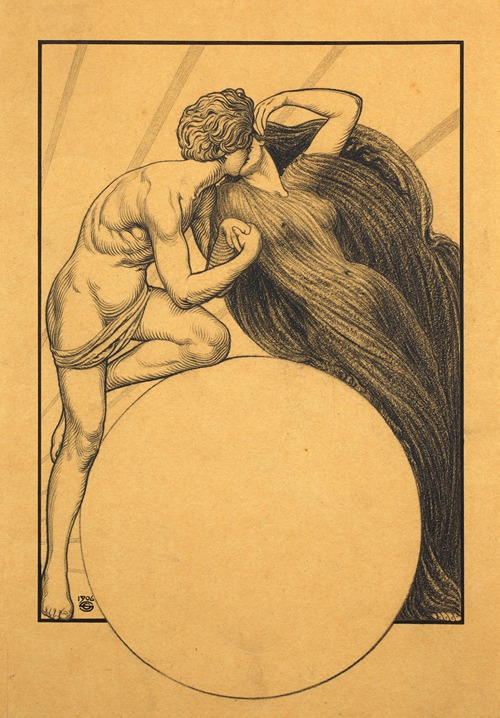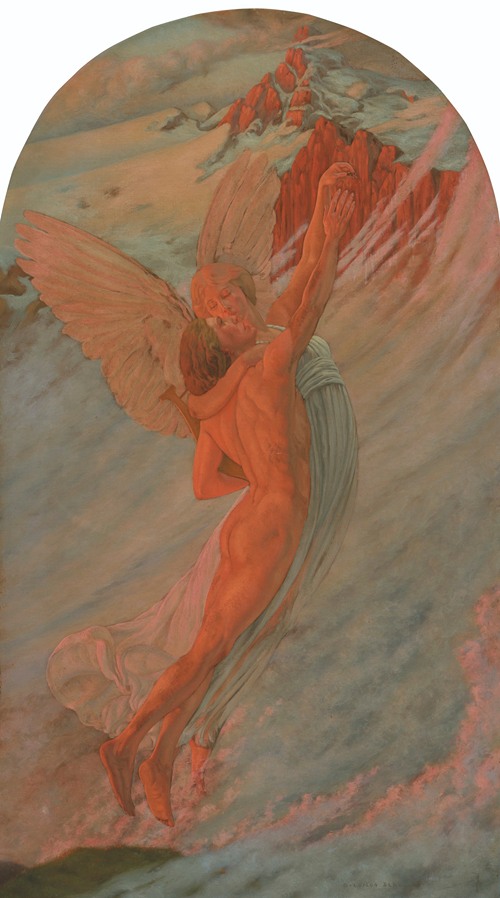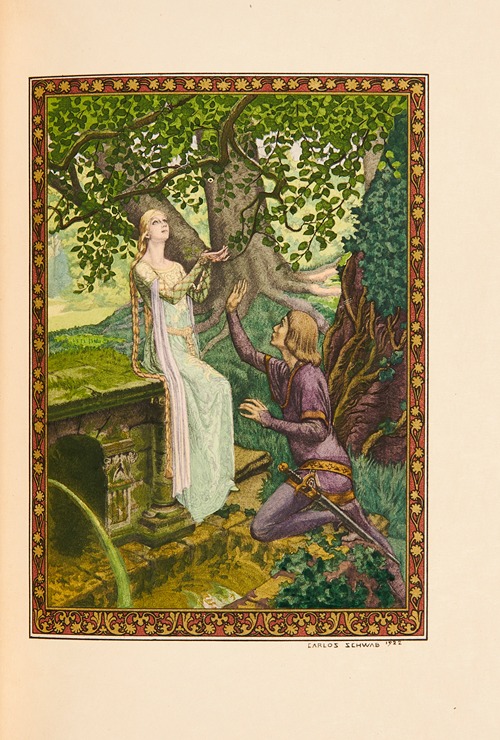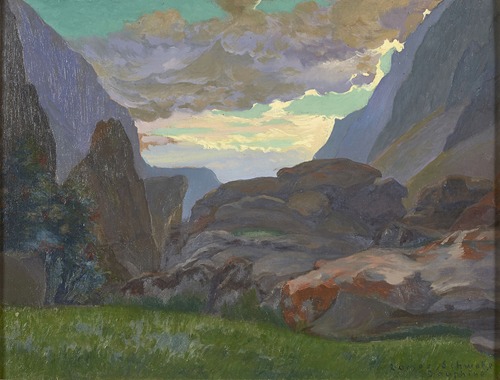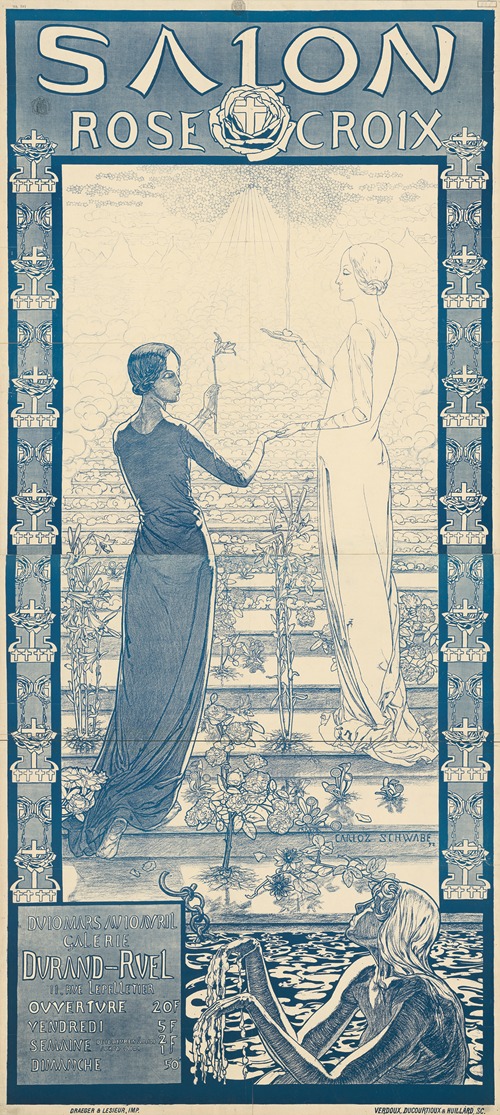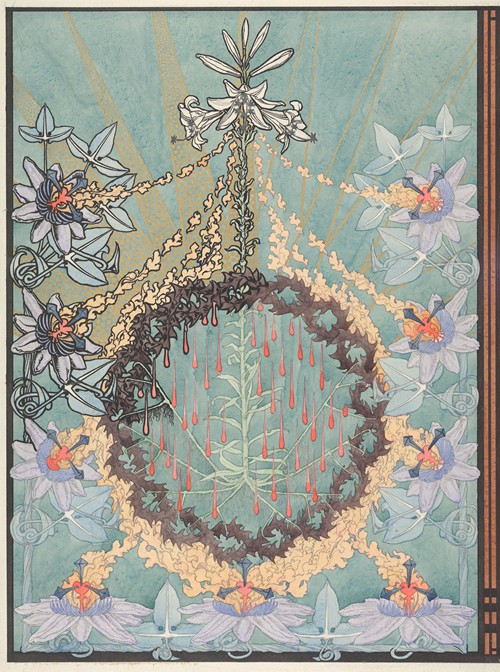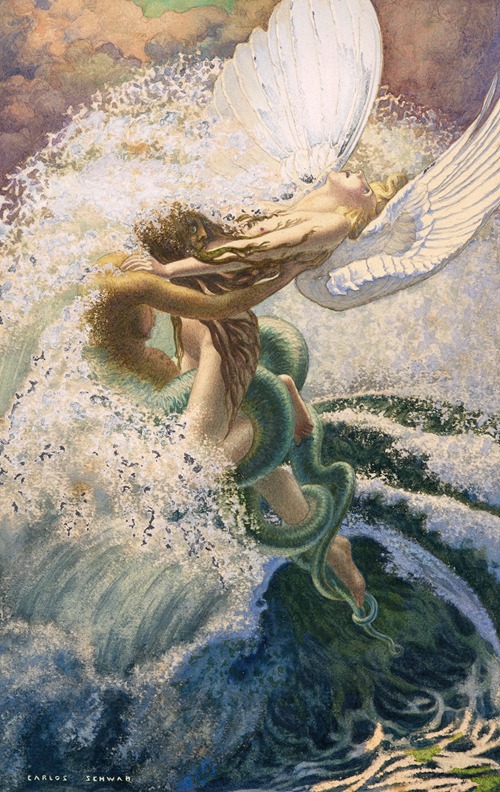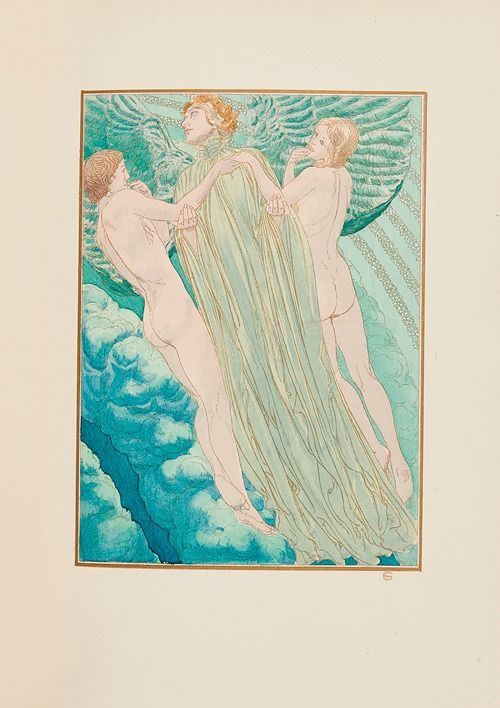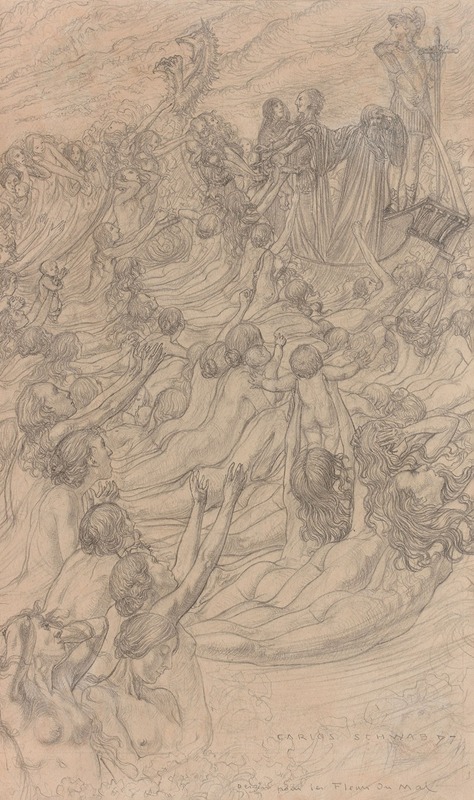
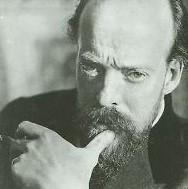
Carlos Schwabe, born Émile Martin Charles Schwabe, was a Swiss Symbolist painter and printmaker.
Schwabe was born in Altona, Holstein into a Jewish merchant family. In 1870 his family moved to Switzerland, receiving Swiss citizenship in 1888. Between the years of 1882 to 1884, he studied at the École des arts industriels.
After studying art in Geneva, he relocated to Paris as a young man, where he worked as a wallpaper designer, and he became acquainted with Symbolist artists, musicians (Guillaume Lekeu, Vincent d'Indy) and writers. In 1892, he was one of the painters of the famous Salon de la Rose + Croix organized by Joséphin Péladan at the Galerie Durand-Ruel. His poster for the first Salon is an important symbolic work of idealist new art. He exhibited at the Société nationale des Beaux-Arts, at the Salon d'automne and was present at the Exposition Universelle of 1900, receiving the Gold medal. In the years that followed his work was also shown in Munich, Zürich, Vienna, and Brussels. Schwabe received the French Légion of Honor in 1902.
Schwabe's paintings typically featured mythological and allegorical themes, with a very personal and idealist vision and social interest. References to the artists Dürer and Mantegna can be seen in Schwabe's work.
Schwabe is known for being one of the most important symbolist book illustrators. He illustrated the novel Le rêve (1892) by Émile Zola, Charles Baudelaire's Les Fleurs du mal (1900), Maurice Maeterlinck's Pelléas et Mélisande (1892), and Albert Samain's Jardin de l'infante (1908), but also texts by Haraucourt, Mallarmé, Blondel, Mendès, Lamennais, etc. His important work La Vague (The Wave), and its preparatory drawings are a testimony of the engagement of the artist during the "Affaire dreyfus".
The most important works by Schwabe belong to the Musée d'Orsay in Paris, the Musée d'Art et d'Histoire in Geneva, the Museu Nacional de Belas Artes in Rio de Janeiro, the Van Gogh Museum in Amsterdam, the Royal Museums of Fine Arts of Belgium in Brussels and in private collections.
Schwabe lived in France for the rest of his life and died in Avon, Seine-et-Marne in 1926.
